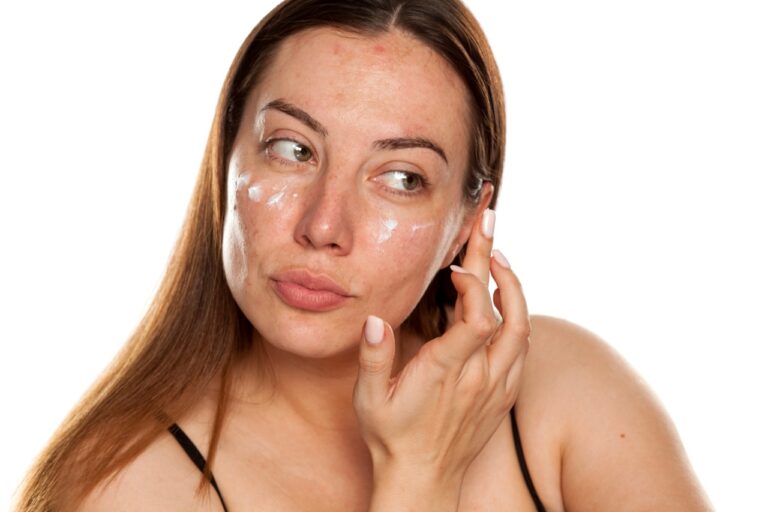Best Skin Tips To Fight Melasma
By Haris Aamir
4 November 2022
Melasma is a skin pigmentation condition that primarily affects women, particularly those with a darker complexion. It most typically shows on the face as black blotches and patches with irregular boundaries. Melasma is not physically hazardous, but studies have shown that the changes it generates in a person's appearance can contribute to psychological difficulties and a lower quality of life.

Melasma is a common condition, with a 1% prevalence that can rise to 50% in higher-risk categories, such as those with darker skin. Melasma is characterized as the "pregnancy mask" because hormonal changes produced by pregnancy, as well as hormonal drugs such as birth control pills, are primary triggers for melasma's increased skin pigment development. Sun exposure is another major cause of melasma.

Can Melasma Be Prevented?
Melasma cannot currently be completely avoided in persons who are predisposed to it owing to their genetics, skin color, hormones, or level of sun exposure. Avoiding direct sun exposure during peak hours (10 a.m. to 4 p.m.), using high-SPF sunscreens consistently, and avoiding hormonal drugs as much as possible may help guard against melasma flares and decrease recurrence after therapy. Sun protection is the cornerstone of any melasma treatment plan.
How Do Dermatologists Diagnose Melasma?
A dermatologist can typically detect melasma by attentively inspecting your face and neck. Your dermatologist may use a specialized device, such as a Wood's lamp or dermatoscope, to get a close-up look. These gadgets, when placed on (or near) your skin, allow your dermatologist to observe how deeply the darker pigment penetrates the layers of your skin. If you wish to treat melasma, this knowledge will be highly beneficial.
Melasma might sometimes resemble another skin disease. To rule out this possibility, your dermatologist may perform a skin biopsy, which includes the removal of a small piece of skin. During your office visit, your dermatologist can perform a skin biopsy in a safe and timely manner.
Best Treatment Options For Melasma
Melasma can diminish on its own, especially if the reason for it, such as pregnancy or oral contraceptive use, is removed. Those who do not want to wait and hope, however, have many therapy alternatives. They are as follows:
Hydroquinone
This drug, which is available as a cream, lotion, gel, or liquid, works by whitening the skin. Hydroquinone is available over the counter, but higher-strength forms can only be purchased with a doctor's prescription.
Tretinoin And Corticosteroids
When used with hydroquinone, these drugs accelerate the skin-lightening process. Some "triple creams" have three ingredients: hydroquinone, tretinoin, and a corticosteroid.
Other Topical Medications
These may include the skin-lighteners azelaic acid or kojic acid, which are also applied to the skin.
In-Office Procedures
When topical drugs fail to provide relief, dermatologists may employ in-office procedures such as a chemical peel, microdermabrasion, or dermabrasion treatment to slough off the top layers of the skin. It should be remembered that inflammation can cause additional pigmentation on the skin.
Prevention Of Melasma Is The Best Strategy
What's the catch? Because no melasma treatment provides permanent benefits, dermatologists recommend maintenance therapy to keep melasma at bay. Certain common-sense precautions can also help prevent melasma from forming in the first place. These are some examples:

Daily Sunscreen Use
Because sunshine is one of the most common causes of melasma, wearing sunscreen every day is a must. Select a sunscreen that offers broad-spectrum protection and has an SPF of 30 or higher.
Outdoor Hats
Broad-brimmed hats shield the face from the sun's beams. Seek shade anytime you're outside.
Gentle Skin Care
Because products that irritate the skin aggravate melasma, use soft products that do not sting or burn the skin.
Even with the best skin care and measures, melasma may not be fully avoidable. However, in the vast majority of cases, attempts to prevent or treat it are successful in keeping those bothersome spots at bay.
You Might Also Want To Read This
Popular Posts







